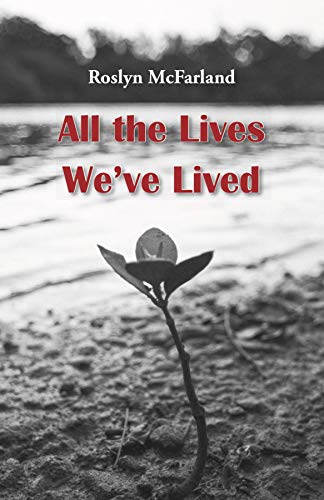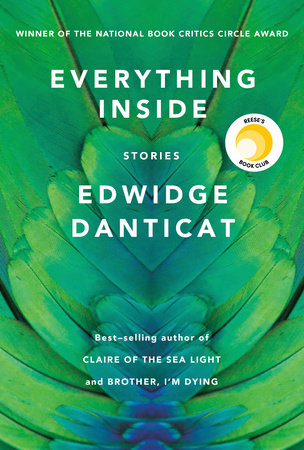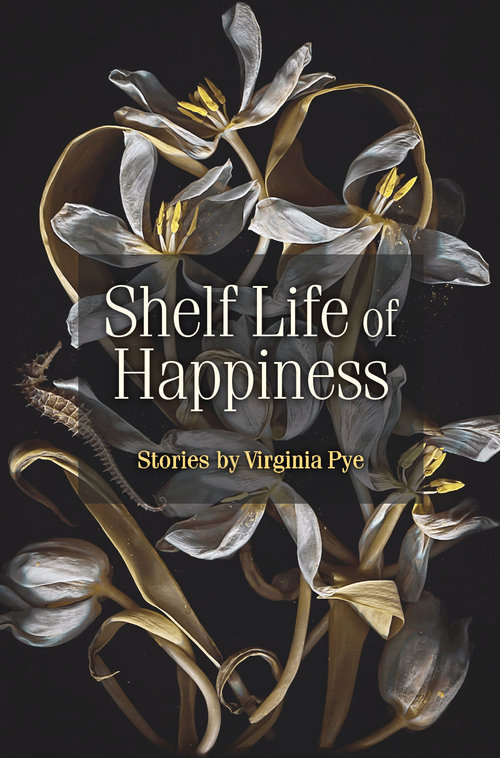 Gatza’s collection of short stories highlight important ideas such as connecting with family members, living the fullest life, challenging how to think beyond the obvious, and learning how to handle grief. Each of these lessons are truly important for both children and adults alike. What connects each of these stories, however, is the ability to experience each day with someone that readers care about whether that be a family member, a parent, a friend, or a sibling.
Gatza’s collection of short stories highlight important ideas such as connecting with family members, living the fullest life, challenging how to think beyond the obvious, and learning how to handle grief. Each of these lessons are truly important for both children and adults alike. What connects each of these stories, however, is the ability to experience each day with someone that readers care about whether that be a family member, a parent, a friend, or a sibling.
Tag: short stories
A review of Two Californias by Robert Glick
 In the midst of narratives preoccupied with decay and disease, Glick’s language is vibrant, even magical, and often humorous in its treatment of youthful yearning and cynicism. The author flexes a talent for poetic prose especially in “Mermaid Anatomy,” which is narrated by a young man on vacation from Holland who plays hide-and-seek with a girl he meets at his hostel.
In the midst of narratives preoccupied with decay and disease, Glick’s language is vibrant, even magical, and often humorous in its treatment of youthful yearning and cynicism. The author flexes a talent for poetic prose especially in “Mermaid Anatomy,” which is narrated by a young man on vacation from Holland who plays hide-and-seek with a girl he meets at his hostel.
A review of All the Lives We’ve Lived by Roslyn McFarland
 Kate’s trajectory is one of discomfort and discovery as she unearths, and then rewrites her history and the history of Salt Pan Creek, facing the wrongs she and her people, including her own parents, have done, and attempting to right them. McFarland does a beautiful job of pulling history, fiction, multiple love stories and trauma together into a coherent narrative that is powerful.
Kate’s trajectory is one of discomfort and discovery as she unearths, and then rewrites her history and the history of Salt Pan Creek, facing the wrongs she and her people, including her own parents, have done, and attempting to right them. McFarland does a beautiful job of pulling history, fiction, multiple love stories and trauma together into a coherent narrative that is powerful.
A review of Everything Inside by Edwidge Danticat

A review of We Will Tell You Otherwise by Beth Mayer
 All the story titles involve some form of the verb, “to tell”, because the collection as a whole is about the things people tell themselves and others. Some characters tell themselves the truth and live authentically; others do not. In “But I Will Tell You Otherwise,” Janie and Cha Cha defy social mores and pressures and think for themselves.
All the story titles involve some form of the verb, “to tell”, because the collection as a whole is about the things people tell themselves and others. Some characters tell themselves the truth and live authentically; others do not. In “But I Will Tell You Otherwise,” Janie and Cha Cha defy social mores and pressures and think for themselves.
A review of Come the Tide by Sam Reese
 Come the Tide is a sun-soaked, water-drenched, variegated collection of thirteen short stories that explores the ambiguous psychic implications of the now-you-see-it/now-you-don’t liminal terrain where dry land meets restless water.
Come the Tide is a sun-soaked, water-drenched, variegated collection of thirteen short stories that explores the ambiguous psychic implications of the now-you-see-it/now-you-don’t liminal terrain where dry land meets restless water.
A review of Dead Aquarium by Caleb Michael Sarvis
 Unlike the fetid and static water evoked by its title, the writing in Dead Aquarium is amazingly fluid and lucid; and it flows, flows easily and effortlessly, so that there is not a single obstruction or blockage, not one awkward, clumsy boulder of a sentence to interrupt the easy procession of prose.
Unlike the fetid and static water evoked by its title, the writing in Dead Aquarium is amazingly fluid and lucid; and it flows, flows easily and effortlessly, so that there is not a single obstruction or blockage, not one awkward, clumsy boulder of a sentence to interrupt the easy procession of prose.
A review of I Truly Lament: Working Through the Holocaust by Mathias B. Freese
 I realize this book is a work of fiction, but it cuts deeply, and leaves the reader contemplating some of the horror that people suffered during Hitler’s reign. Though not the easiest book to read, I Truly Lament is compelling, and very well written. The book was one of three finalists chosen in the 2012 Leapfrog Press Fiction Contest out of 424 submissions, and it’s easy to see why.
I realize this book is a work of fiction, but it cuts deeply, and leaves the reader contemplating some of the horror that people suffered during Hitler’s reign. Though not the easiest book to read, I Truly Lament is compelling, and very well written. The book was one of three finalists chosen in the 2012 Leapfrog Press Fiction Contest out of 424 submissions, and it’s easy to see why.
A review of New Micro: Exceptionally Short Fiction edited by James Thomas and Robert Scotellaro
 All of the micros in this collection could be described as “on the verge of vanishing.” But thinking about this specific set of stories related to disappearing, especially Cooper’s, leads me to wonder why we’re drawn to this particular form, especially now. Forget the Internet and the short-attention span argument for a moment. What if the desire for the micro and flash fiction is born of a last-ditch effort to get in and get out, while we can?
All of the micros in this collection could be described as “on the verge of vanishing.” But thinking about this specific set of stories related to disappearing, especially Cooper’s, leads me to wonder why we’re drawn to this particular form, especially now. Forget the Internet and the short-attention span argument for a moment. What if the desire for the micro and flash fiction is born of a last-ditch effort to get in and get out, while we can?
A review of Shelf Life of Happiness by Virginia Pye
 In her short story collection, Shelf Life of Happiness, Virginia Pye has a character, Nathan, in the title story, remarking about the “long shadow” that “Papa” casts over “lesser writers.” If Ms. Pye ever felt overshadowed by the great Ernest Hemingway, or compelled to imitate his style, she has overcome it.
In her short story collection, Shelf Life of Happiness, Virginia Pye has a character, Nathan, in the title story, remarking about the “long shadow” that “Papa” casts over “lesser writers.” If Ms. Pye ever felt overshadowed by the great Ernest Hemingway, or compelled to imitate his style, she has overcome it.